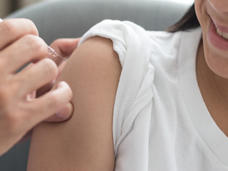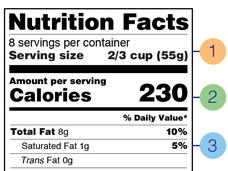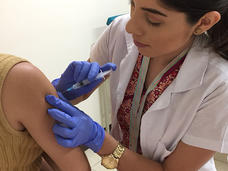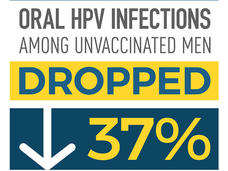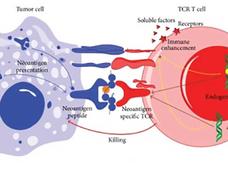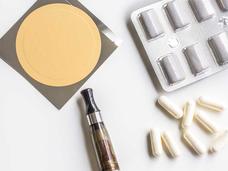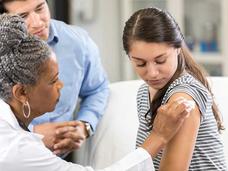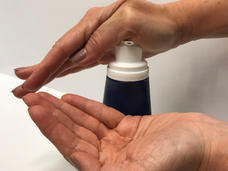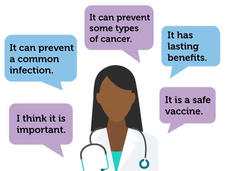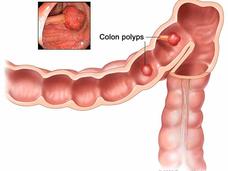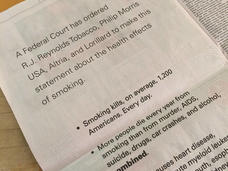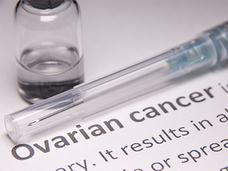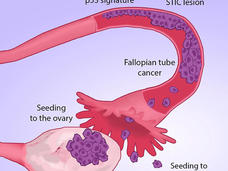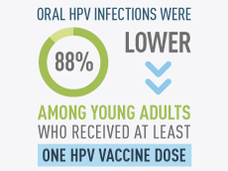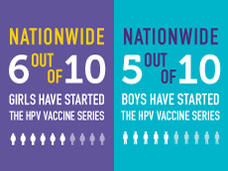Prevention - Cancer Currents Blog
Cancer prevention news, with comments from leading scientists. Topics include preventive interventions for those at increased risk of cancer, protective behaviors, and more.
-
Large Study Confirms that HPV Vaccine Prevents Cervical Cancer
Widespread HPV vaccine use dramatically reduces the number of women who will develop cervical cancer, according to a study of nearly 1.7 million women. Among girls vaccinated before age 17, the vaccine reduced cervical cancer incidence by 90%.
-
Regular Aspirin Use May Increase Older People’s Risk of Dying from Cancer
Regular use of low-dose aspirin may increase an older person’s risk of being diagnosed with advanced cancer and of dying from cancer, results from the ASPREE clinical trial suggest. Learn more about what this 19,000-participant study found.
-
Updated Nutrition Facts Label Reflects Science on Diet and Health, including Cancer
On January 1, 2020, the Food and Drug Administration (FDA) began requiring food manufacturers to display updated nutrition facts labels on their product packaging. Experts from FDA and NCI discuss the update and the research that underpins the changes.
-
Single Dose of HPV Vaccine Yields Long-Term Protection from Many Cancer-Causing Types
More than a decade after vaccination, women who had received a single dose of the HPV vaccine continued to be protected against infection with the two cancer-causing HPV types targeted by the vaccine, an NCI-funded clinical trial shows.
-
HPV Vaccine May Provide Men with “Herd Immunity” against Oral HPV Infections
Oral HPV infections cause over 70% of all oropharyngeal cancers in the United States. In a new study of adults aged 18‒59, the rate of HPV vaccination rose from 0% to 6% for men, while oral HPV infections fell by 37% among unvaccinated men.
-
Pediatricians’ Offices Can Help Parents Quit Smoking, Study Shows
Researchers tested a program that trains pediatricians’ offices to provide smoking cessation treatment to parents during visits with their child’s doctor. The approach is intended to reach adults who are motivated to quit to protect their child’s health.
-
Prostate Cancer Prevention and Finasteride: A Conversation with NCI’s Dr. Howard Parnes
The Prostate Cancer Prevention Trial showed that finasteride can reduce the risk of prostate cancer, but might increase the risk of aggressive disease. NCI’s Howard Parnes talks about subsequent findings and what they mean for men aged 55 and older.
-
Could a Vaccine Prevent Colorectal Cancer in People with Lynch Syndrome?
Findings from an NCI-funded study suggest a new vaccine approach may have the potential to prevent colorectal cancer in people with Lynch syndrome, an inherited condition that increases an individual's risk for developing certain types of cancer.
-
Fewer Women with Ovarian, Breast Cancer Undergo Genetic Testing than Expected
Many women diagnosed with ovarian and breast cancer are not undergoing tests for inherited genetic mutations that can provide important information to help guide decisions about treatment and longer-term cancer screening, a new study has found.
-
UK Clinical Trial Compares E-cigarettes, Nicotine-Replacement Products for Smoking Cessation
Researchers in the United Kingdom have found that e-cigarettes combined with counseling may be more helpful to smokers trying to quit tobacco than counseling and nicotine-replacement products, such as patches, gums, and lozenges.
-
The HPV Vaccine: Increasing the Use of an Important Cancer Prevention Tool
Dr. Barbara Rimer, chair of the President’s Cancer Panel, summarizes the panel’s recent report on the HPV vaccine, which includes priorities and strategies to ensure that more people receive this critical cancer vaccine.
-
Vitamin D Supplements Don’t Reduce Cancer Incidence, Trial Shows
In the largest-ever randomized trial testing vitamin D for cancer prevention, the supplement did not lower the risk of developing cancer. The Vitamin D and Omega-3 Trial (VITAL) includes a nationally representative sample of nearly 26,000 participants.
-
Can Topical Drugs Help Prevent Breast Cancer?
Researchers are testing a topical-gel form of the drug tamoxifen to see if it can help prevent breast cancer as effectively as the oral form of the drug but with fewer side effects.
-
Cancer Prevention Message Is Key for HPV Vaccination Discussions with Parents
Health care providers should emphasize cancer prevention when discussing HPV vaccination with the parents of preteens who are due to receive the vaccine, results from a new study show.
-
Drug Combination Reduces Number of Colorectal Polyps in Patients with Hereditary Cancer Syndrome
People with FAP, an inherited condition that greatly increases their risk of gastrointestinal cancer, who took the drugs erlotinib (Tarceva) and sulindac (Aflodac) saw a substantial decrease in the number of precancerous lesions in the colon and rectum.
-
An Important Moment in Tobacco Control
November 26, 2017, marked a unique moment in US public health history, with the major US tobacco companies issuing the first in a series of court-ordered "corrective statements" about their products.
-
Experimental Ovarian Cancer Vaccine Shows Promise in Mice
The experimental vaccine targets a protein found at elevated levels in about 90% of the most common type of ovarian cancer. If validated in human studies, researchers believe the vaccine may be particularly useful for women who carry BRCA1 and BRCA2 gene mutations.
-
Many Ovarian Cancers May Start in Fallopian Tubes, Study Finds
A new study provides more evidence that the most common form of ovarian cancer may originate in the fallopian tubes, and that there is a window of nearly 7 years between development of fallopian tube lesions and the start of ovarian cancer.
-
HPV Vaccination Linked to Decreased Oral HPV Infections
A study of more than 2,600 young adults found that the prevalence of oral infection with four HPV types, including two cancer-causing types, was 88% lower in those who reported receiving at least one dose of an HPV vaccine than in those not vaccinated.
-
CDC Updates Recommendations on HPV Vaccine
Updated CDC recommendations advise those younger than age 15 need only two doses of the HPV vaccine instead of three.
